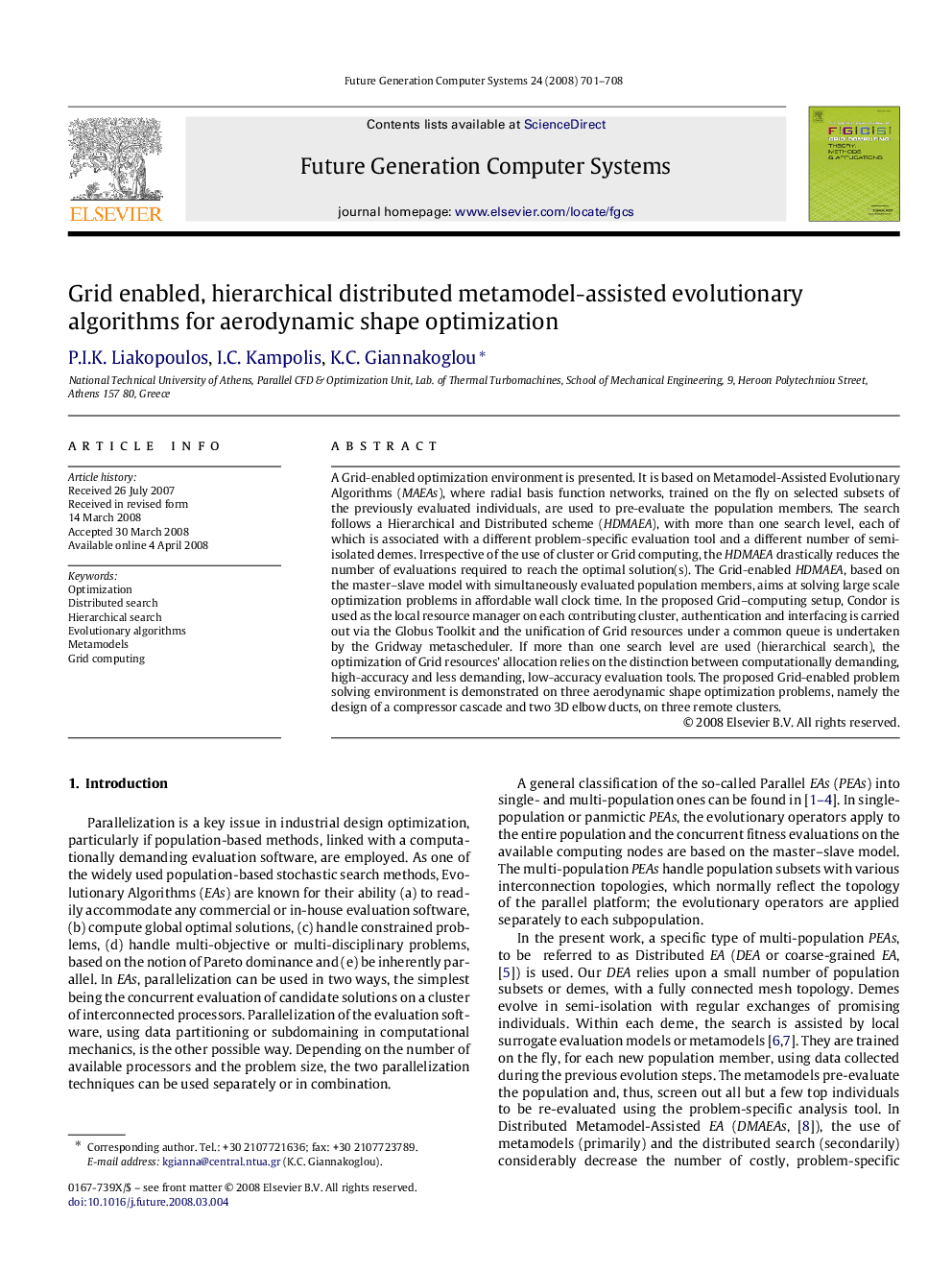| Article ID | Journal | Published Year | Pages | File Type |
|---|---|---|---|---|
| 425484 | Future Generation Computer Systems | 2008 | 8 Pages |
A Grid-enabled optimization environment is presented. It is based on Metamodel-Assisted Evolutionary Algorithms (MAEAs), where radial basis function networks, trained on the fly on selected subsets of the previously evaluated individuals, are used to pre-evaluate the population members. The search follows a Hierarchical and Distributed scheme (HDMAEA), with more than one search level, each of which is associated with a different problem-specific evaluation tool and a different number of semi-isolated demes. Irrespective of the use of cluster or Grid computing, the HDMAEA drastically reduces the number of evaluations required to reach the optimal solution(s). The Grid-enabled HDMAEA, based on the master–slave model with simultaneously evaluated population members, aims at solving large scale optimization problems in affordable wall clock time. In the proposed Grid–computing setup, Condor is used as the local resource manager on each contributing cluster, authentication and interfacing is carried out via the Globus Toolkit and the unification of Grid resources under a common queue is undertaken by the Gridway metascheduler. If more than one search level are used (hierarchical search), the optimization of Grid resources’ allocation relies on the distinction between computationally demanding, high-accuracy and less demanding, low-accuracy evaluation tools. The proposed Grid-enabled problem solving environment is demonstrated on three aerodynamic shape optimization problems, namely the design of a compressor cascade and two 3D elbow ducts, on three remote clusters.
